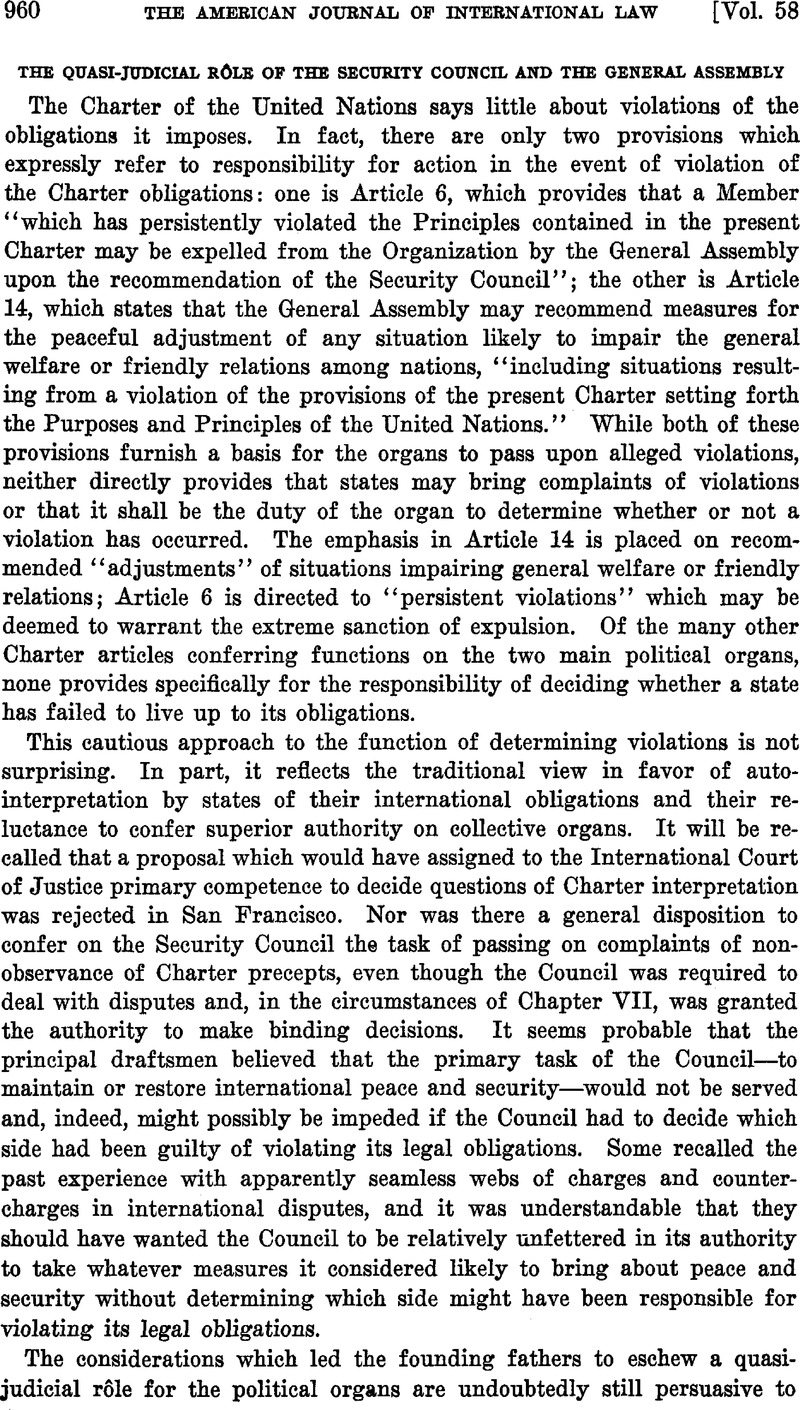Article contents
The Quasi-Judicial Role of the Security Council and the General Assembly
Published online by Cambridge University Press: 28 March 2017
Abstract

- Type
- Editorial Comments
- Information
- Copyright
- Copyright © American Society of International Law 1964
References
1 In all of these cases, resolutions were adopted at one stage or another which explicitly or by unmistakable implication declared state conduct to be contrary to the Charter. There was, of course, a much larger number of cases in which charges of illegality were extensively debated without the adoption by the organs of decisions confirming such charges. However, in some of these cases, the proceedings may be said to exhibit a broad consensus on the characterization of certain conduct as legally impermissible. 1 Cited in “United States Contemporary Practice Relating to International Law,“ 57 A.J.I.L. 409 (1963). 2 376 V. S. 398 (March 23, 1964); 58 A.J.I.L. 779 (1964). 3 In 1933, at Montevideo, a Convention on the Eights and Duties of States was adopted, including a rule that recognition of a state was “unconditional and irrevocable,“ but this would seem not to apply to governments; and in any case the broad reservation accompanying the signature of the United States would dispose of any legal obligation in the matter.
- 26
- Cited by




